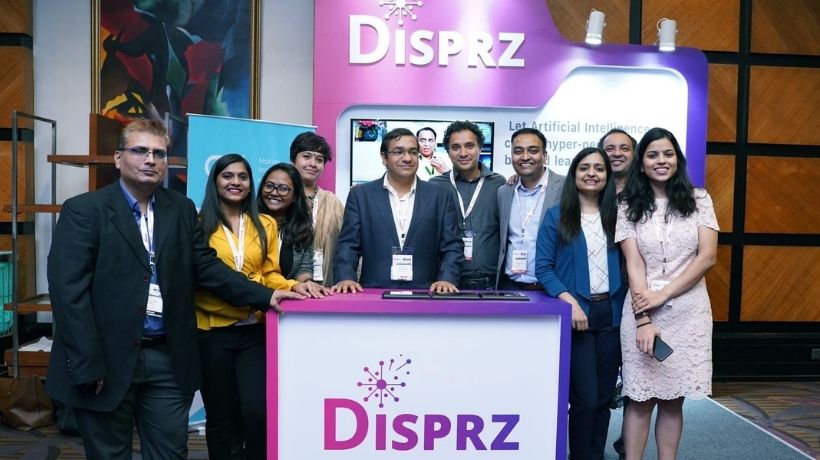Enterprise skilling provider Disprz raised $13 million in Dallas Venture Capital and Mars Growth Capital led Series B fundraising round.
Existing investors Go1 (an Australian unicorn in this field), Tara India Fund IV, administered by KOIS, Auctus Capital (Family Office of Vikas Phadnis, Co-Founder of Eurokids), and Kae Capital also participated in the round (a leading seed fund). For this transaction, Unitus Capital served as the company’s (Disprz) financial advisor.
What Is Disprz All About?
Disprz is a learning management and engagement program that is hosted in the cloud. Its product is an AI-powered skill and career acceleration solution. It was founded in 2015 by Subramanian (Subbu) Viswanathan and Kuljit Chadha.
In India, Disprz has quietly emerged as the leading SaaS startup in the learning and skilling industry. It also won the government of India’s Atma Nirbhar Bharat App Innovation Challenge and was mentioned in the Prime Minister’s radio speech last year.
Their services consist of elements like employee progress monitoring, behavioral skills, employee analytics, employee engagement, and workplace interactions, among others. Manufacturing, logistics, construction, financial services, and other industries can Disprz.
Disprz’s clientele includes Wellness Forever, More Retail, Times Internet, Motilal Oswal Financial Services, Godrej Storage Solutions, Hindustan Coca-Cola Beverages, KBZ MS General Insurance, Oman Oil, AIA Group, and 200+ other Indian and global firms.
With over 1.2 million users, the company’s purpose is to help each person develop professionally and personally by providing best-in-class technology-led, scientifically-backed skills experiences.
What Does This Fresh Funding Mean?
Disprz will use this funding to better its product and engineering team, launch new sales and marketing divisions in the United States, invest in developing industry-specific product solutions, and extend its existing presence in Southeast Asia and the Middle East.
Disprz CEO Viswanathan, a serial entrepreneur, and alum of IIT-Madras, ISB, and McKinsey, stated:
“We are excited to welcome Dallas Venture Capital into the mission of Disprz. DVC’s founding teams are former founders who have scaled and exited start-ups and their understanding of the SaaS space, coupled with their strong network in the US, make them a perfect partner for Disprz as we look to establish ourselves in developed markets, particularly the US.”
Co-founder Chadha shared:
“We started out as a single product company, but are now a multi-product company, addressing the skill needs of both frontline and knowledge workers through unique offerings, while solving key business problems. We are no longer just a good-to-have learning platform but a core business platform that can provide our customers with a competitive advantage.”
The company is expanding into new industries like banking, insurance, Fintech, eCommerce, and IT, where they have strong experience in skill detection, measurement, and effectiveness.
Disprz seeks to enhance the backbone of brands that have an impact on people’s everyday lives. According to Chadha, Disprz already has this impact in India and hopes to build so in other major global economies.
What Does The Future Hold?
Vishwanathan is looking forward to better Disprz and the enterprise training scenario as a whole in the future.
“L&D and capability building spend at enterprises lack an overarching thread and we intend to solve that problem, both by bringing a skills-first approach as well as by making business functions, key stakeholders. We aim to act as the window for every aspect of learning and skilling spend at corporations and show business impact… Our mission also has a profound social impact, and we are proud of that,” he said.
Disprz has continuously quadrupled sales year after year, with a 150% increase in revenue in 2021. By 2025, the firm wants to accomplish its goal of a global top line of $100 million.
In 2019, global learning and development investment was $360 billion, and Covid-19 has accelerated this spending, which is anticipated to reach $500 billion by 2025.

